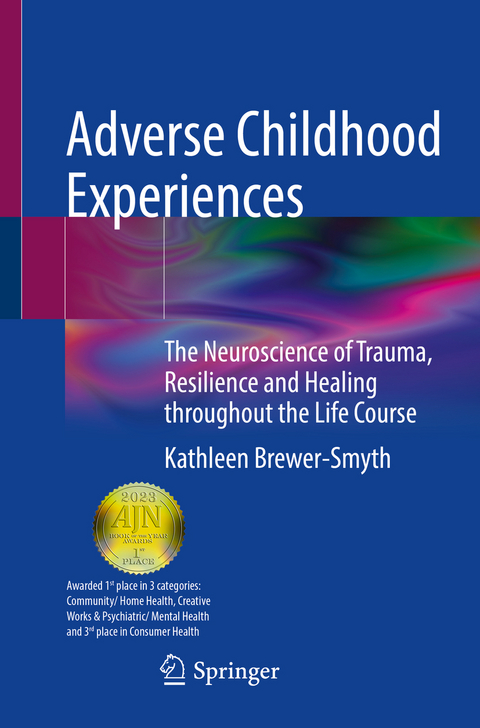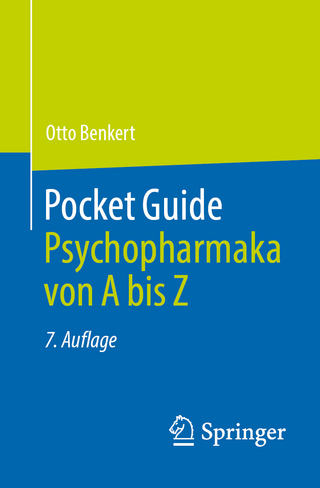
Adverse Childhood Experiences
Springer International Publishing (Verlag)
978-3-031-08800-1 (ISBN)
The entire world is in crisis with adverse childhood experiences (ACEs) and other lifetime trauma at an all-time high. This book is a valuable resource to promote optimal brain function for everyone, but especially for survivors of trauma who are particularly at risk throughout the life course. It is critical for healthcare providers, schoolteachers and administration, public safety professionals, foster and adoptive parents, employers and loved ones to understand the potential life-long consequences that ACEs can have in the lives of survivors. This book describes the complexities behind why behaviors occur if hurt people hurt themselves and others.
The first half of this book addresses what can go wrong in the brain and body after trauma that potentially leads to life-long poor bio-behavioral health outcomes. The second half of this book addresses how the life-long poor bio-behavioral health outcomes can be prevented, mitigated or potentially reversed. This book is necessaryfor everyone who is interested in optimizing brain function, especially survivors of ACEs and other trauma throughout the life course who are at greater risk. The major focus of the book is on how to prevent long-term negative consequences of trauma and how to restore the brain, body, behavior and emotions.This book won four American Journal of Nursing (AJN) Book of the Year Awards. It was awarded 1st place in 3 categories (Community/ Home Health, Creative Works, and Psychiatric/ Mental Health) and 3rd place in the Consumer Health category.
No book has ever won this many AJN awards since AJN first began acknowledging high-quality publications on nursing and healthcare topics in 1969.Kathleen Brewer-Smyth, PhD, RN, MSN, CRRN, FAAN is an Associate Professor in the School of Nursing at the University of Delaware, Newark, DE, USA. She completed a master's degree, PhD, and postdoctoral fellowship at the University of Pennsylvania, Philadelphia, PA, USA, where she studied primarily neuroscience nursing, victimology, and forensic neuroscience. Dr. Brewer-Smyth is a neuroscience nurse specialist and board certified rehabilitation registered nurse (CRRN). She teaches advanced neuroscience and conducts neuroscience research on the life-long bio-behavioral health outcomes of the cycle of trauma, abuse and violence that often begin in childhood. She has published and presented extensively on these topics. She was awarded the Association of Rehabilitation Nurses Doctorate-Prepared Researcher Award for her work that has been referenced by scholars and policy-makers worldwide. She was inducted as a Fellow in the American Academy of Nursing (FAAN) because of the global impact of her work.
Part I. Overview of Adverse Childhood Experiences.- 1. Introduction, Epidemiology, Measurement and the Cycle of Trauma.- Part II. The Potential Serious Nature of Adverse Childhood Experiences.- 2. Impact of Adverse Childhood Experiences and Neurodevelopment.- 3. Potential Life-long Neurobiological, Bio-Behavioral and other Outcomes of Trauma.- Part III. The Potential Impact of Trauma on the Brain, Body, Behavior and Society.- 4. Childhood Physical Abuse (CPA), Childhood Sexual Abuse (CSA), Abusive Traumatic Brain Injury (TBI), Childhood Emotional Abuse (CEA), Neglect and Other Trauma.- 5. Absence of a Healthy Parent: Mental and Physical Illness, Substance Misuse and Trauma in the life of Parents, Caregivers, and Significant Others.- 6. Racial, Ethnic, Gender and Economic Disparities and Trauma.- 7. COVID-19 Trauma: The New Complex Adverse Childhood Experience.- Part IV. Physiological and Psychological Healing, Trauma-Informed Rehabilitation, Breaking the Cycle of Trauma, and Resilience throughout the Life Course.- 8. Protective, Compensatory and Benevolent Experiences for Building Resilience.- 9. Understanding and Responding to Survivors of Trauma: Emotional Intelligence to Build Healthy Relationships.- 10. Trauma Informed Self-Care: Emotional & Spiritual Resilience and Healing.- 11. Overview of Psychological and Psychiatric Interventions after Trauma: Counseling, Psychotherapy and Medications.- 12. Brain Food: The Impact of Diet, Nutrition and Nutraceuticals on the Brain and the Microbiota-Gut-Brain Axis.- 13. Physical Exercise, Sleep and the Brain.- 14. Self-Help for Life-Long Resilience: Cognitive Engagement, Education, Creativity, Sense of Purpose in Life and Humor.- 15. The Healing Power of Nature on the Brain: Healing in Green Spaces and Blue Spaces.- 16. Primary and Secondary Prevention, Health Equity and Trauma-Informed Institutional and Public Policies to Promote Healing and Resilience.
| Erscheinungsdatum | 10.11.2022 |
|---|---|
| Zusatzinfo | XXV, 454 p. 12 illus. in color. |
| Verlagsort | Cham |
| Sprache | englisch |
| Maße | 155 x 235 mm |
| Gewicht | 895 g |
| Themenwelt | Geisteswissenschaften ► Psychologie ► Klinische Psychologie |
| Medizin / Pharmazie ► Pflege | |
| Sozialwissenschaften ► Pädagogik ► Sozialpädagogik | |
| Sozialwissenschaften ► Soziologie | |
| Schlagworte | Abuse • ACE • Bio-behaviour • brain health • chronic stress • Cortisol • De-Escalation • Forgiveness • Health behaviours: diet, exercise, sleep, environment • Health Outcomes • Hypothalamic-pituitary-adrenal (HPA) axis • neuro-biology • Neuroscience • Post-traumatic rehabilitation • Resilience • Toxic stress • Trauma Informed • traumatic brain injury (TBI) • Violence |
| ISBN-10 | 3-031-08800-X / 303108800X |
| ISBN-13 | 978-3-031-08800-1 / 9783031088001 |
| Zustand | Neuware |
| Informationen gemäß Produktsicherheitsverordnung (GPSR) | |
| Haben Sie eine Frage zum Produkt? |
aus dem Bereich


